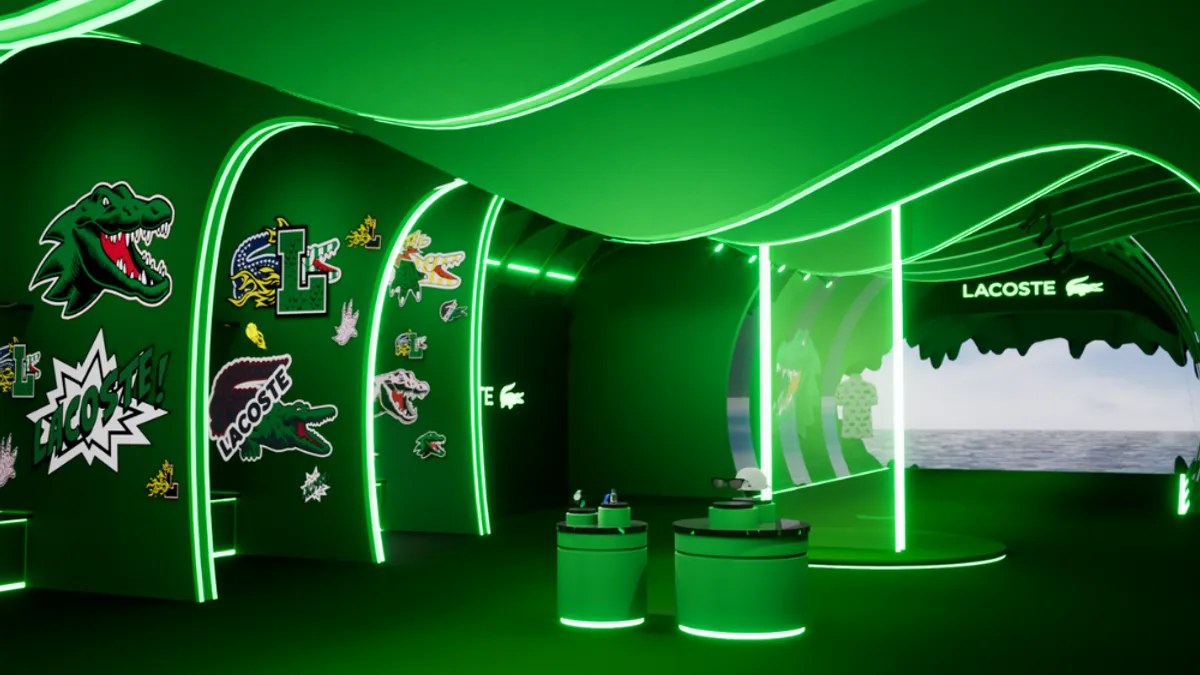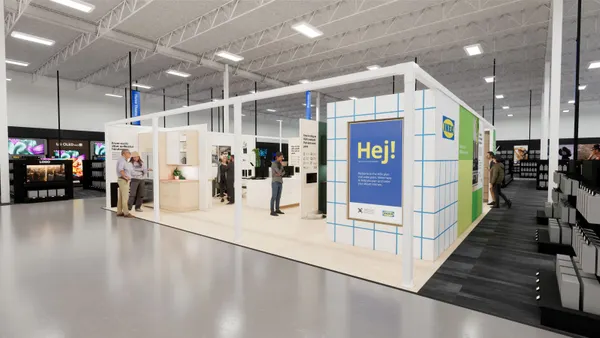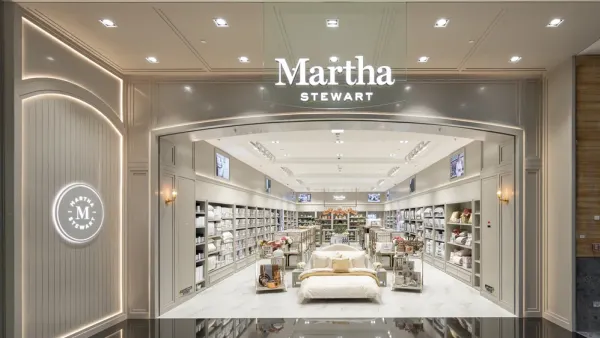Dive Brief:
- Following a similar move by Bloomingdale’s, Lacoste has tapped Emperia, a virtual reality tech company, to create a virtual store, according to a Tuesday press release shared with Retail Dive.
- After entering the store through a crocodile's mouth, virtual visitors can view and purchase five seasonal products in the retailer's showroom. Another virtual room holds the retailer's Christmas-themed merchandise, according to the press release.
- The virtual store also has a room only available to members of its UNDW3, the retailer's Web3 community, who hold a Lacoste NFT. Customers can visit this room in December to get the "loot" boxes, and the retailer will choose five customers each day to win a prize, per the press release.
Dive Insight:
Among the other companies that Emperia has worked with are Burberry, Dior and Christie's, per the company's press release. Earlier this month, Bloomingdale's joined in on the virtual store trend just in time for the holiday shopping season. The department store had virtual sections for brands like Nespresso, Chanel and Ralph Lauren.
"Lacoste is bridging the gap between holiday shopping and gamification with this unique virtual experience. Tapping into a wide variety of demographics with the various rooms and product ranges enables Lacoste to attract a wide range of demographics," Olga Dogadkina, co-founder & CEO of Emperia, said in a statement. "Having a presence in the metaverse during such a significant shopping season and utilizing NFTs in a practical way that creates a sense of community, will take Lacoste to the next level, allowing them to leverage e-commerce and web3 innovation like never before, positioning the brand as fashion trailblazer."
Like Lacoste and Bloomingdale's, other retailers and brands have been experimenting with the metaverse to bring in revenue from digital goods and bridge the online world with the real world. In a similar move, Adidas launched a product category for digital gear, enabling customers to buy clothing created for online avatars.
Other brands have also been launching non-fungible tokens to attract customers. In August, Tiffany's introduced a collection of 250 NFTs that customers could redeem for a real pendant called an NFTiff, previously valued at $47,000. The following month, Gap launched a logo competition in which the winning artist's Gap logo will be turned into an NFT and featured on a hoodie. The next day, Puma unveiled its first metaverse experience, titled Black Station, ahead of New York Fashion Week, in which customers can buy NFTs and redeem them for limited-edition real shoes.












